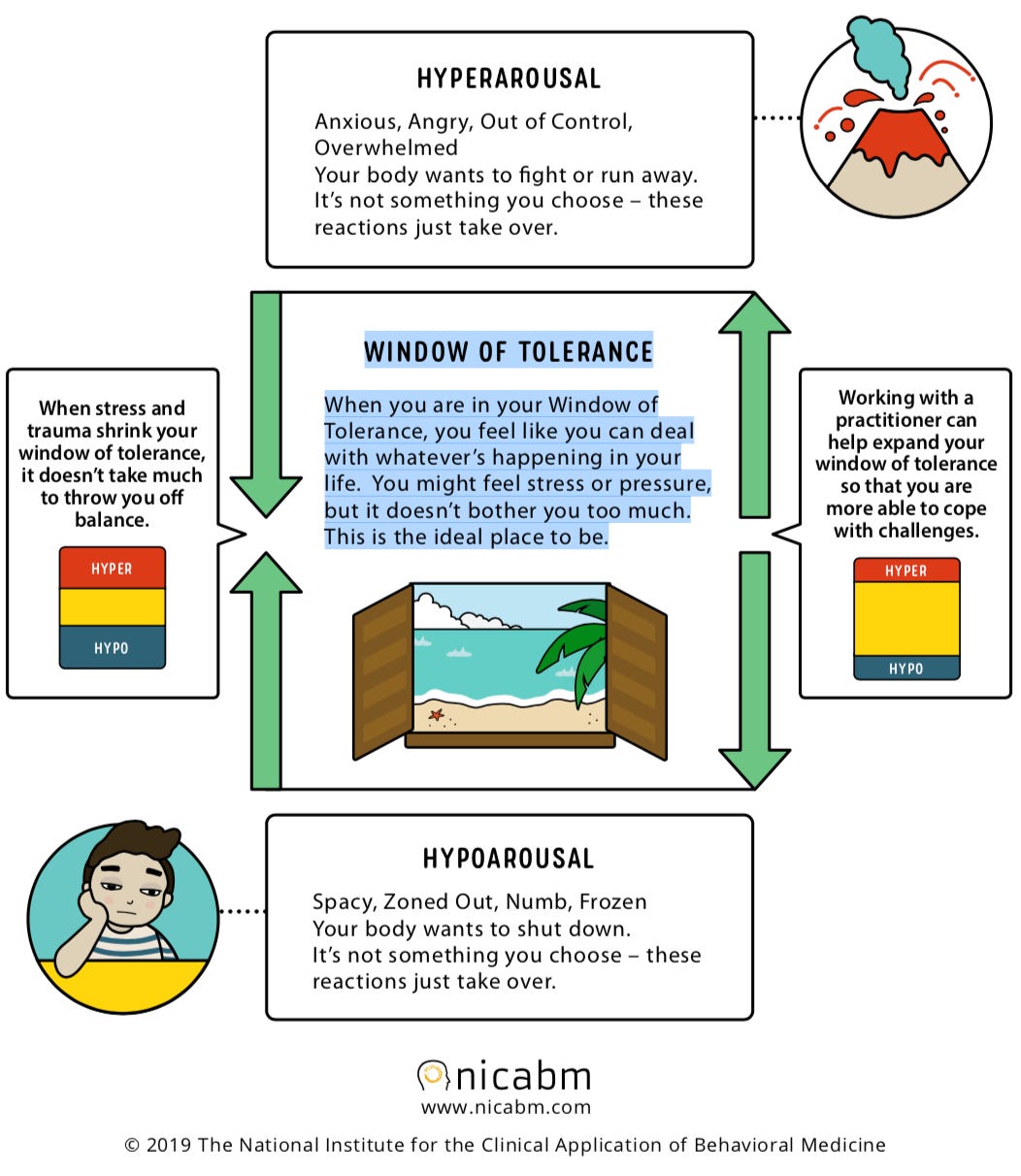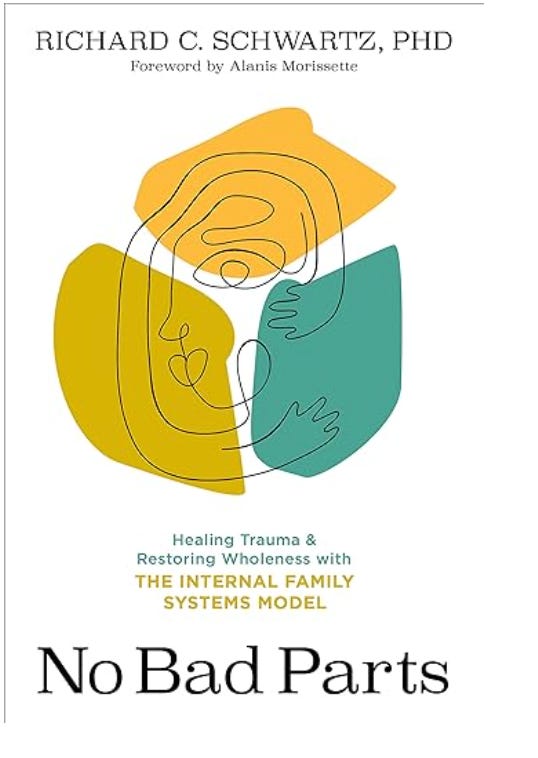Expanding our Window of Tolerance
Our parts affect our ability to return to our soul-home.
We often want to make changes, and yet without addressing our internal narratives, seeking to change our behavior can be futile. We all have inner beliefs—about ourselves, the world, others. I’m not talking about spiritual beliefs but rather these frameworks that impact how we navigate life. Some of these we are conscious of, some we are not.
In my book, From Burned Out to Beloved, I have two chapters on our internal narratives, or false beliefs. Although I reference how these internal narratives often develop to protect ourselves when we were young, I didn’t yet have language to name was how they affect our Core Self.
Internal Family Systems
This summer I took an Integrative Somatic Parts Training, offered by Embody Lab, an embodied approach to Internal Family Systems. IFS is a therapeutic model that describes:
The Self exists in all traditions. Undamaged by trauma, IFS encourages pulling it forward, inviting our True Self as the inner leader to all the parts. “Like a conductor to the orchestra”, as Dr. Fran Booth explained in the Embody Lab training
Although protectors have served a purpose, and will have a role throughout our life, they block our Core Self or True Self. They cloud are ability to see and ask for what we need, to return to our soul-home.
When we engage in embodied practices that connect us with our self, we are rewiring our brain, giving our bodies new ways of responding.
Dr. Fran Booth shared: “When I’m in my self energy I feel like I can handle any emotion.” Now I would call that an expanded window of tolerance.
Window of Tolerance
“When you are in your Window of Tolerance, you feel like you can deal with whatever’s happening in your life.” This term and concept was coined by Dan Siegel in his book, The Developing Mind: How Relationships and the Brain Interact to Shape Who We Are.
Trauma affects our window of tolerance—our capacity to handle life’s circumstances and regulate our emotions.
The Window of Tolerance is not a fixed shape, but we can actually expand this window, increase our ability to cope with life’s challenges. We might not go into hyperarousal (anxious and angry) or hypoarousal (spaced out or numb) so quickly or deeply. We are more able to recognize what we are feeling and tend to our emotions.
Learning about the Window of Tolerance and IFS has given me new language to understand how we navigate life and how we can learn to listen to our bodies and create space for our True Self. Clearly much more could be said about this, and there are some resources below if interested.
For now, I invite you to notice with grace, how you are feeling and what this is bringing up in you. Slowing down and giving yourself space to notice, helps to expand your window of tolerance and give your Core Self a chance to lead the orchestra.
Weekly Invitations:
At the end of the day, reflect back on your responses to stressful events. How did you handle it? What did stress feel like in your body? What coping strategies did you use or could you use?
For five minutes a day, practice contemplation, setting a timer and sitting in stillness.
“The contemplative life is not so much a matter of transcending the illusions of mundane existence or attaining states of perfect equanimity as it is about becoming as fully present as possible to the realities of the human experience. In showing up for what is, no matter how pedestrian or tedious, how aggravating or shameful, the what is begins to reveal itself as imbued with holiness. How do we make space in our lives for this kind of sacred seeing?
~Mirabai Starr, Wild Mercy
Therapist Resources:
If you are interested in finding a therapist, type in ‘Internal Family Systems’ to Psychology Today website after entering your location. Or check out Northwest Family Life if in the NW of US, or Embody Lab Therapy Directory
Recommended Resources:
Internal Family Systems (IFS) theory seems to be increasing in popular conversation, from Glennon Doyle’s podcast, to lots of books. Check out these as starters if interested:






IFS has been so helpful to me, Bethany. I'm glad you're writing about it.
Great resource someone shared with me! https://vimeo.com/403183017